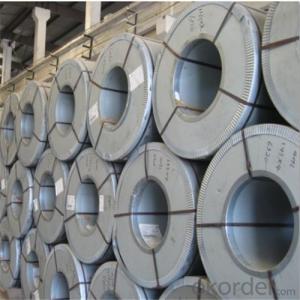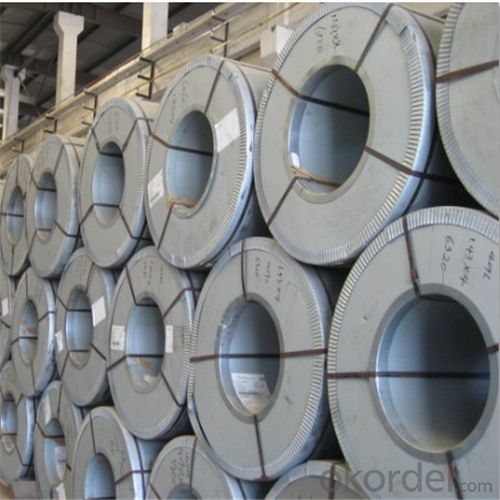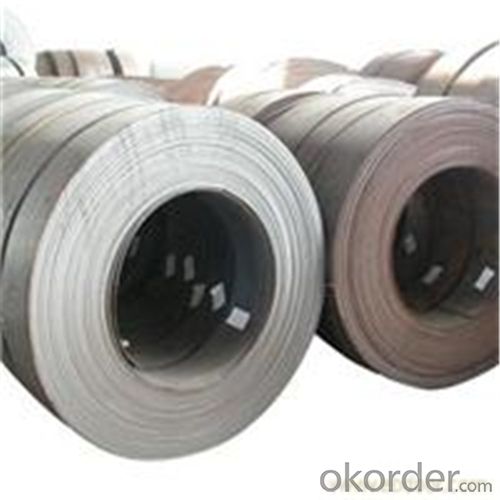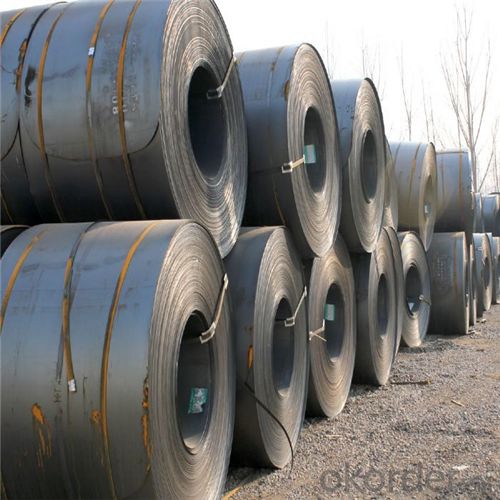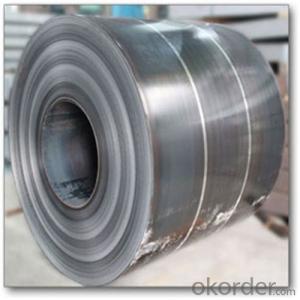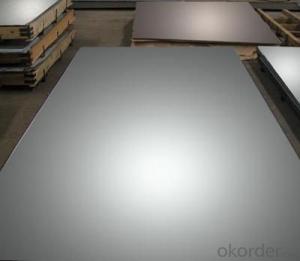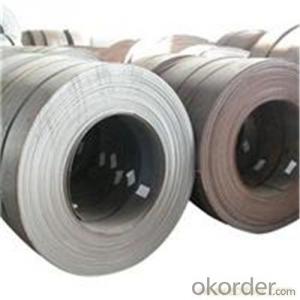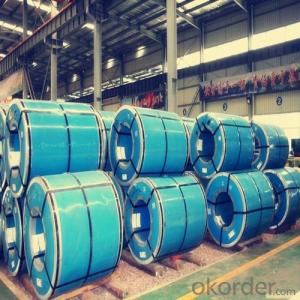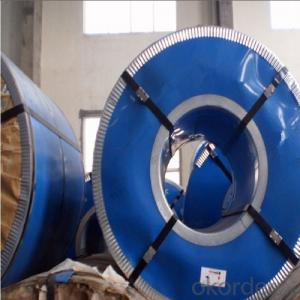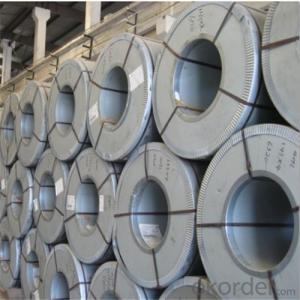Hot Rolled Steel Coil Used for Industry with Our Best Competitive Price
- Loading Port:
- Tianjin
- Payment Terms:
- TT OR LC
- Min Order Qty:
- 25 m.t.
- Supply Capability:
- 5000 m.t./month
OKorder Service Pledge
OKorder Financial Service
You Might Also Like
Hot Rolled Steel Coil Used for Industry
1.Structure of Hot Rolled Steel Coil Description
Rolled to its final dimensions while it’s hot enough to scale, our hot-rolled steel is an amalgamation of the various qualities of steel. It can be in the form of plates, sheet and coils. Our Hot-Rolled Steel Sheets and Coils are applied to a wide range of uses such as automobile, electrical appliance, machinery manufacturing, container manufacturing, shipbuilding, bridge, pipeline, and receive high acclaim from our customers for its excellent quality.
2.Main Features of the Hot Rolled Steel Coil
•High Purity
•Easy control and operation
•High strength
•Fast melting
•Competitive price
•Best Service
3. Hot Rolled Steel Coil Images
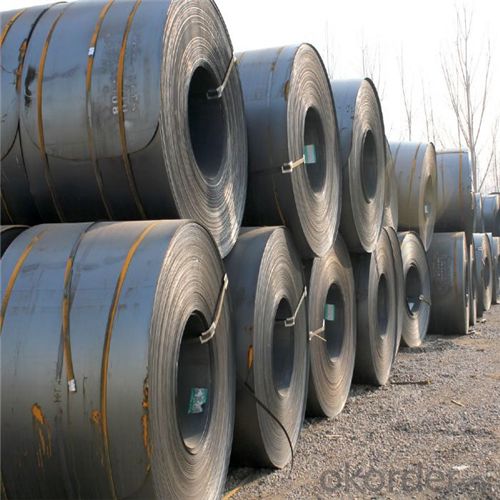
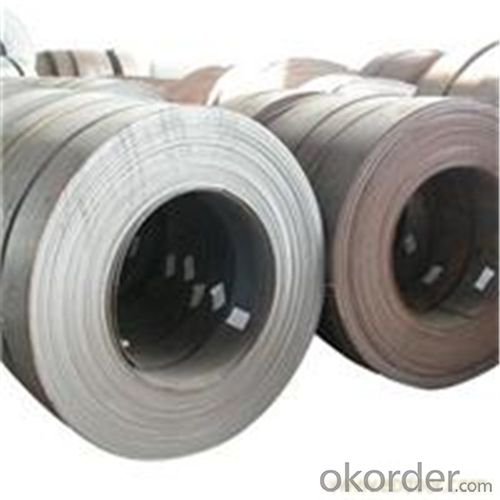
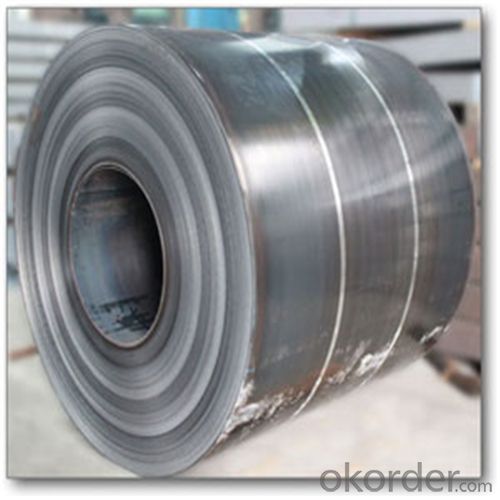
4. Hot Rolled Steel Coil Specification
HOT ROLLED STEEL COIL | |
Thicknenss | 1.5mm-25mm |
Width | 600mm-2000mm |
Sheets length | ---- |
Coil inner diameter | 762mm |
Surface treatement | ---- |
Coil weight | ---- |
5.FAQ of Hot Rolled Steel Coil
We have organized several common questions for our clients,may help you sincerely:
①How about your company?
Annually more than 8000 tons Precision casting and forging parts are exported to markets in Europe,America and Japan. OEM casting and forging service available according to customer’s requirements.
②How to guarantee the quality of the products?
We have established the international advanced quality management system,every link from raw material to final product we have strict quality test;We resolutely put an end to unqualified products flowing into the market. At the same time, we will provide necessary follow-up service assurance.
③How long can we receive the product after purchase?
In the purchase of product within three working days, We will arrange the factory delivery as soon as possible. The pecific time of receiving is related to the state and position of customers.Commonly 7 to 10 working days can be served.
- Q: How do steel coils contribute to acoustic performance in buildings?
- Steel coils can contribute to acoustic performance in buildings by providing a solid structure that reduces vibrations and sound transmission. The use of steel coils in construction helps dampen noise by absorbing and dissipating sound waves, resulting in a quieter and more comfortable indoor environment.
- Q: How are steel coils processed at the steel service centers?
- Steel service centers process steel coils through a series of steps to transform them into finished products that meet the specific requirements of customers. The process typically begins when the steel coils arrive at the service center. These coils are usually large and heavy, and they may have been produced by a steel mill or imported from overseas. Upon arrival, the steel coils undergo a quality inspection to identify any defects and ensure that only high-quality coils are used in the production process. After inspection, the coils are stored in a warehouse until they are ready for processing. Next, the steel coils are uncoiled to create flat sheets of steel. This can be done manually or using automated machines, depending on the size and thickness of the coils. The uncoiled steel is then leveled to remove any residual stress and ensure a flat and consistent surface. Once leveled, the steel sheets go through various processes based on the desired end product. These processes may include cutting, shearing, slitting, and forming. Cutting and shearing involve shaping the steel sheets into specific sizes or shapes. Slitting involves cutting the steel into narrow strips, while forming involves bending or shaping the steel. After the desired processing operations are completed, the steel sheets are often treated with surface finishes to enhance their appearance or protect them from corrosion. These finishes may include painting, coating, or galvanizing. Finally, the processed steel sheets undergo another quality inspection to ensure they meet the required specifications. They are then packaged and prepared for shipment to customers in industries such as construction, automotive, or manufacturing. Overall, the processing of steel coils at steel service centers involves a combination of inspection, uncoiling, leveling, cutting/shearing/slitting/forming, surface finishing, quality control, and packaging. This process allows for the transformation of steel coils into finished products that are customized to meet the specific needs and requirements of customers.
- Q: i have a guitar with three nylon three steel strings. Am i able to replace the nylons with steel strings?
- Depends okorder Classical guitars aren't able to handle the tension of steel strings for the most part. Be careful with deciding which type and gauge string to put on certain guitars.
- Q: How are steel coils used in the manufacturing of agricultural machinery?
- Steel coils are used in the manufacturing of agricultural machinery as they are shaped and cut to create various components such as frames, brackets, and structural supports. These coils provide the necessary strength and durability required for heavy-duty equipment used in farming operations.
- Q: How do steel coils contribute to the marine industry?
- Steel coils are a crucial component in the marine industry as they have various applications that contribute to the development, maintenance, and efficiency of marine vessels. Firstly, steel coils are used in the construction of ships and offshore platforms. Their high strength and durability make them ideal for the hull structure, ensuring the integrity and safety of the vessel, even in harsh marine environments. Additionally, steel coils are utilized in the fabrication of various marine equipment and components. For instance, they are used to manufacture propellers, shafts, and rudders, which are essential for steering and propelling ships. The use of steel coils in these parts ensures their resilience against the corrosive effects of seawater, thus increasing their lifespan and reducing maintenance costs. Moreover, steel coils are employed in the production of marine pipelines and oil rig infrastructure. These coils are transformed into pipes and tubes that are used in the transportation of oil, gas, and other fluids. The strength and corrosion resistance of steel coils are vital in ensuring the reliability and safety of these pipelines, as they need to withstand extreme pressure and exposure to saltwater. Steel coils also play a role in the marine industry's maintenance and repair processes. When a ship undergoes renovations or repairs, steel coils are often used to replace damaged or corroded sections of the vessel. The versatility of steel coils allows them to be molded and welded into various shapes and sizes, making them suitable for different repair applications. Overall, steel coils contribute significantly to the marine industry by providing the necessary strength, durability, and corrosion resistance for the construction, maintenance, and efficiency of marine vessels. Their applications in shipbuilding, component fabrication, pipeline construction, and repair processes make them indispensable to the development and sustainability of the marine industry.
- Q: i have recently gotten into DIY and am planning on making my own knife. My question is what kind of steel would be good to use for heat treating if i plan on using water and not oil in the process.
- Go to junkyard get old leaf spring, cut out knife, start sharpening. Why waste time heat treating steel when the spring steel as already be done.
- Q: What are the different types of steel grades used for coil production?
- There are several types of steel grades used for coil production, including carbon steel, stainless steel, and alloy steel. Carbon steel is the most common type and is widely used due to its affordability and versatility. Stainless steel is highly resistant to corrosion and is often used in applications where hygiene and appearance are important. Alloy steel, on the other hand, contains additional elements such as manganese, nickel, and chromium, which enhance its strength and durability. Each type of steel grade has its own unique properties and is chosen based on the specific requirements of the coil production process.
- Q: How are steel coils used in the manufacturing of solar panels?
- Steel coils are used in the manufacturing of solar panels primarily for the structural support and durability they provide. These coils are often used to construct the frames and mounting systems that hold the solar panels in place. The strength of steel ensures that the panels remain stable and secure, even in harsh weather conditions. Additionally, steel coils can be shaped and formed to meet the specific design requirements of solar panel installations, making them a crucial component in the manufacturing process.
- Q: Can steel coils be coated with thermally insulating materials?
- Yes, steel coils can be coated with thermally insulating materials.
- Q: How are steel coils used in the production of storage tanks and silos?
- Due to their strength and durability, steel coils are essential in the production of storage tanks and silos. Typically made from high-quality steel, these coils undergo various manufacturing techniques to achieve the desired thickness and shape. In the production process, the steel coils are initially uncoiled and then cut into specific sizes and lengths to meet the requirements of the storage tank or silo design. Bending and rolling machines are then used to shape the coils into cylindrical sections, forming the main body of the tank or silo. After achieving the desired shape, the coils are welded together to create a continuous and secure seam. This welding process ensures leak-proof tanks and silos that can withstand the pressure exerted by the stored materials. Furthermore, steel coils play a crucial role in reinforcing the structure of storage tanks and silos. They are frequently utilized to construct the roofs, bottoms, and other structural components of these storage units. The strength and resilience of steel make it ideal for supporting the weight of the stored materials and resisting external forces. Additionally, steel coils can be coated or treated with protective materials to enhance their resistance to corrosion and extend their lifespan. This is particularly important for storage tanks and silos that store corrosive substances or are exposed to harsh environmental conditions. In conclusion, steel coils are a fundamental element in the production of storage tanks and silos, providing the necessary strength, durability, and structural integrity required for these storage units.
Send your message to us
Hot Rolled Steel Coil Used for Industry with Our Best Competitive Price
- Loading Port:
- Tianjin
- Payment Terms:
- TT OR LC
- Min Order Qty:
- 25 m.t.
- Supply Capability:
- 5000 m.t./month
OKorder Service Pledge
OKorder Financial Service
Similar products
Hot products
Hot Searches
Related keywords
